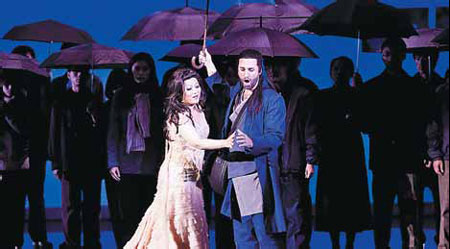Sound Effects
Updated: 2013-07-26 08:24
By Chen Jie (China Daily)
|
||||||||
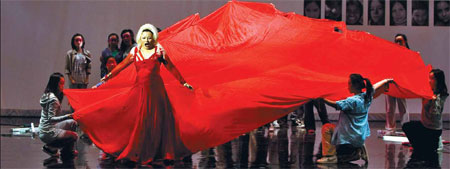
|
From top: Two scenes from Zhou Long's opera Madame White Snake, commissioned by Opera Boston and the Beijing Music Festival. Photos Provided to China Daily |
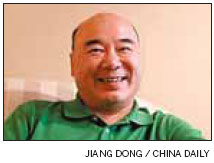
When an award-winning composer finds music in the bustling sounds of old Beijing, the result is magical, Chen Jie reports.
If he had not become a composer, Zhou Long would have liked to be an industrial designer.
As a 5-year-old, Zhou enjoyed disassembling a radio and making model planes, but his vocalist mother wanted him to play the piano.
She wrote the names of 20 pieces of music on 20 strips of paper and stuck them on one side of the piano. Whenever Zhou finished playing a piece, he could move one strip to the other side. Zhou always tried to move more than one strip after playing a piece if mother was not watching him. One day when he "finished" all 20 and rushed to open the door, he found it was locked. Without any hesitation, he broke the window, cutting his hands.
"The boys of my age were playing so loudly in the courtyard that I could not help rushing out to join them," Zhou says. His home was in a hutong near the China Central Academy of Drama where his father taught set design.
He says he often hung around the area's hutong, observing peddlers, street barbers, people fluffing cotton or sharpening knives, and they made all kinds of noises or, say, music. It was even more fun during the temple fairs.
Half a decade later, Zhou puts all those sounds and his boyhood memories into his composition Beijing Rhyme - Symphonic Suite for orchestra. Its premiere by Beijing Symphony Orchestra on June 15 was a success and on Thursday, Beijing Symphony Orchestra performed it again under the baton of its music director Tan Lihua at the National Center for the Performing Arts to warm applause.
The first movement Wind of Bell and Drum features Chinese percussion and brings to life Beijing's Bell and Drum Towers area where Zhou lived. You can also hear the pigeons whistling in the sky, a common sound in old Beijing.
The second movement Wind of Temple Fair, dynamic with constant changes in rhythms, also features percussion from Chinese gongs. In the third movement Wind of Beijing Rhyme, the composer adapts the techniques of jingyun dagu and meihua dagu, two kinds of ballad-singing drumbeat performances popular in Beijing, to the timpani.
The last movement Wind of Hasty Beats features the elements of errentai, a folk performance form popular in Hebei province - but it is played on the violin.
Zhou was commissioned to write a piece in the name of Beijing last summer in Kansas City, where he works as distinguished professor of music at University of Missouri. Tan called him from Beijing.
They had not met each other. Tan was on the jury of a national composition competition in 2012. He appreciated Zhou's symphony Humen 1839 very much and the piece won the final prize. As director of Beijing Symphony Orchestra, Tan wishes to commission a work for the city and since Zhou was born and grew up in Beijing, Tan reached out to Zhou.
In Beijing Rhyme, conductor Tan says, Zhou creates a unique style by incorporating Chinese percussion and folk music elements of Beijing into Western conceptions of harmonic notions.
In addition to the Beijing flavor, Beijing Rhyme features many music elements of North China's Hebei and Shanxi provinces and the Inner Mongolia autonomous region, reflecting his life in those regions before he started his college education.
When the "cultural revolution" (1966-76) broke out, the students all dropped out of school and he "had nothing to do, so I learned to play the accordion".
Upon Chairman Mao's call, millions of students went to the countryside to learn from farmers. The 16-year-old Zhou went to Beidahuang, in Heilongjiang province in October 1969.
"When the train set off from Beijing, girls started to cry, but we boys all felt somehow romantic. I carried an accordion and imagined playing it on the wild grassland," recalls Zhou.
It was not romantic as he imagined. It was hot in the daytime and the mosquitoes buzzed around them while they farmed. The nights were so cold that even the toothpaste was frozen.
"In the first few years we had the passion to work in the remote frontier, but the romantic idea was finally beaten down by the hardship and the boring life," says Zhou, who also suffered from arthritis.
He broke his back in an accident at work and was sent back to Beijing in 1974. His mother who always hoped he would become a musician invited her colleagues from the Central Conservatory of Music to teach him at home.
Zhou says his first opera Madame White Snake (2010), which won him the Pulitzer Prize, is dedicated to his mother. "She always thought I should be composer," Zhou says.
After his recovery from the back injury, his parents connected him with a performing troupe in Zhangjiakou, Hebei province, where he did everything from composing, conducting to playing percussion and even opening the curtain.
The troupe was located in the border area of Hebei, Shanxi and Inner Mongolia, so Zhou learned folk music and instruments there.
In the summer of 1977, Zhou heard the country would restart the national college entrance examination. He returned to Beijing to apply for the Central Conservatory of Music.
More than 1,000 people applied for the composing department, and Zhou was one of the 32 admitted the next spring. Among them were big names - including Chen Yi who later became his wife, Tan Dun, Chen Qigang, Guo Wenjing and Ye Xiaogang - and together they made the famous Class of 1977 on the international music stage.
After graduation in 1982, Zhou first worked at Beijing's Broadcasting Symphony Orchestra for two years. In 1985 he gained a scholarship for a doctoral degree in composition at Columbia University.
In 1987, a friend introduced him to a pianist who asked him to write a piece. Zhou created Wuji and started his exploration in atonality. He scored quite a few chamber music pieces that many considered too serious, academic and experimental. But he did not give up, and eventually grabbed the top prize in Germany for his work Ding in 1991.
After that came many award-winning works. The highlight was Madame White Snake, commissioned by Opera Boston and the Beijing Music Festival.
His next work will premiere at the Beijing Music Festival in October. It is inspired by Chinese poet Qu Yuan's poem Nine Songs.
"Madame White Snake has been a huge success, so we wanted to commission Zhou to write one more piece. I know he loves traditional Chinese culture including the ancient poems and calligraphy. So after discussion we decided to write something for the famous poet Qu Yuan," says Tu Song, program director of the festival.
Contact the writer at chenjie@chinadaily.com.cn.

(China Daily USA 07/26/2013 page14)

 Top DPRK leader meets Chinese vice-president
Top DPRK leader meets Chinese vice-president
 US does not plan decision on Egypt coup
US does not plan decision on Egypt coup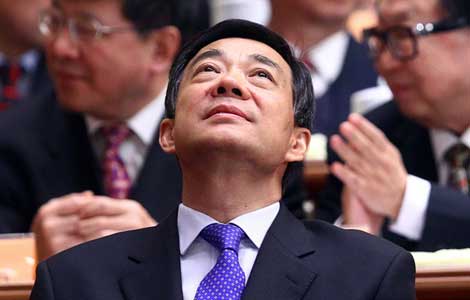
 Bo Xilai indicted for corruption
Bo Xilai indicted for corruption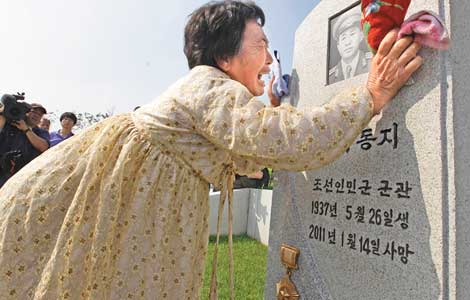
 Korean War veterans return to peninsula
Korean War veterans return to peninsula
 Tourist safety a priority in S China Sea
Tourist safety a priority in S China Sea
 Death toll in Spain train crash rises to 77
Death toll in Spain train crash rises to 77
 Royal baby named George Alexander Louis
Royal baby named George Alexander Louis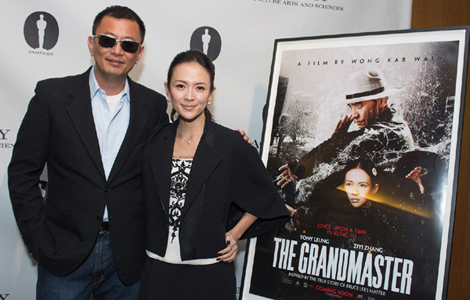
 'The Grandmaster' takes center stage
'The Grandmaster' takes center stage
Most Viewed
Editor's Picks

|

|

|

|

|

|
Today's Top News
Scholars provide a tour 'around the world'
GM says weakness in Asia leads to profit drop
Syrian rebels ask Kerry to send US arms quickly
Flights over sea 'routine training'
US does not plan decision on Egypt coup
Congress approves NSA spying program
Japanese PM unlikely to visit Yasukuni Shrine
Girl, 2, thrown to ground; suspect detained
US Weekly

|

|
